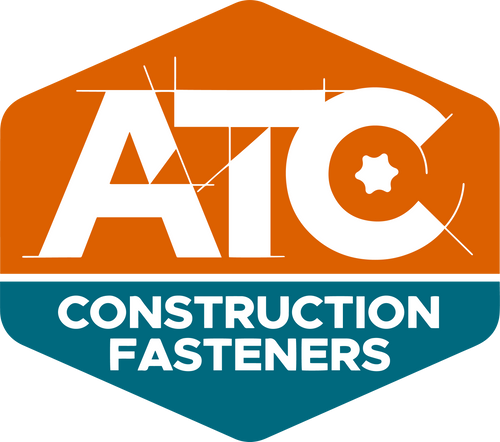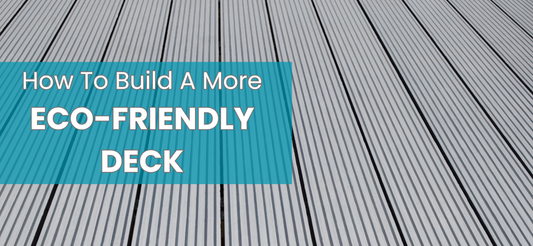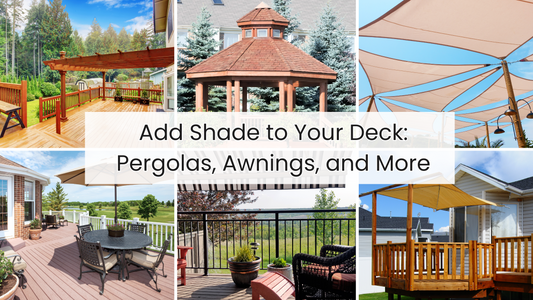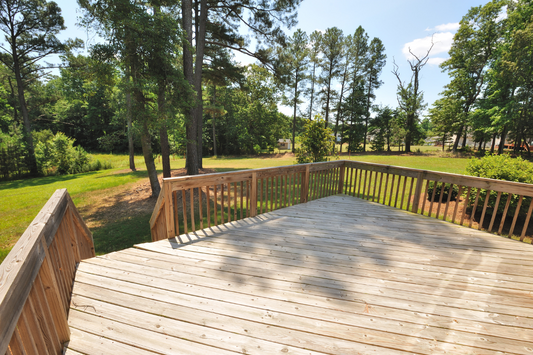If you're trying to find the right screws for your construction projects, the huge selection on the market can be pretty overwhelming. Yet, many still choose to use heavy-duty galvanized screws.
The pros and DIY-ers choose these screws because they are well-priced, strong and very corrosion resistant. So, how well do these screws work on different construction projects that people still consider these screws as their go-to?
Key Takeaways (TL;DR)
-
Galvanized screws work well in damp environments due to their zinc coating.
-
Install using proper tools and techniques. Safety first.
-
Galvanized fasteners have a wide variety of applications. However, for marine usage or construction projects in contact with saltwater, rather use stainless steel screws.

What Are Galvanized Screws?
Galvanized screws undergo a unique treatment to make them rust-proof and improve their durability in a variety of applications. As these screws go through the galvanization process, they get a zinc coating bonded to the steel at molecular level that protects from rust and corrosion.
Why Galvanized Screws?
When it comes to how well these screws work, there are many reasons why builders and contractors use them.
Corrosion Resistance
The fact that they are resistant to rust and corrosion is a major factor. These screws are significantly more resistant to rust and corrosion than zinc plated or epoxy coated screws. Their ability to withstand damp environments and severe weather conditions makes them ideal for outdoor projects.
Durability
Heavy-duty galvanized screws are designed to stand the test of time. They're generally of a heavy gauge and available in long lengths, suitable as a quicker alternative to spikes, threaded rods and lag screws, while offering rock solid holding power, especially when joining heavy sections of timber. Whether you're building a deck or constructing a jetty, these screws are up to the task. You’ll have peace of mind, assured that your project will remain sturdy for years.
Cost Effectiveness and Speed of Installation
Heavy-duty galvanized screws provide amazing value with their impressive strength and durability. While not the ultimate for marine and coastal applications, they are durable and built to last, costing much less than the stainless steel equivalent.
Designed to replace the lag screw, they are also much quicker to use than traditional threaded rod and many variants now are self drilling. (Just use an impact driver, not a cordless drill!)
These features make them a great option for anyone requiring dependable, efficient performance without breaking the bank.
Versatility
Galvanized screws are extremely versatile and can be used in many applications. No matter if you're tackling an outdoor deck sub-structure, structural framing, roofing, or general construction, these screws are sure to help you out.
When to Use Galvanized Screws

Building a deck:
Galvanized screws are great for decking projects because they make a strong link that can last through harsh weather and a lot of foot traffic.
Your deck will stay safe and look good for many years.
Uses:
-
Securely fastening ledger boards to the building.
-
Attaching joists to posts.
-
Attaching the stair stringers and balustrades to the deck frame.
-
Fixing cross bracing to keep deck frames stable and rigid.
-
Simpson Strong-Tie connector screws are specifically designed as a far superior replacement for nails when using steel connectors such as joist hangers and hurricane clips.
Building Your Fence:
Galvanized screws are ideal for fixing the rails to your fence posts, creating a very strong connection.
Uses:
-
Putting caps on fence posts to make a strong, rust-proof connection
-
Securing latches and gate hinges
-
Adding hooks, plants, lights, and other decorative items to the fence
-
Adding reinforcements to the joints, keeping your fence's structural integrity intact.
Roofing:
Available with a washer designed to create a water-tight seal against the roof-sheets, these screws are used by the million.
Uses:
-
Attaching metal sheets to the roof structure, available for both wood and metal applications .
Framing:
In framing projects, these screws are used to secure structural components.
Uses:
-
Attaching Truss Rafters to the double top plates on the wall studs.
-
Securing headers and beams for a durable connection when creating stair openings in floors.
-
Installing bracing and strengthening timber framed structures and roofs.
Marine Applications:
While stainless steel is the best choice here, properly galvanized screws are durable enough to handle the rough marine environment, whether you're fixing up a small boat or constructing a big dock.
Uses:
-
Heavy duty wharf, jetty and dock construction
-
Coastal and wetland walkways
-
Securing fences and guardrails
-
Over-water boathouse and roof construction.
Outside Furniture and kid’s playground equipment:
Galvanized screws are an ideal choice to make furniture that will last in any weather, whether you're updating your garden seating area or making an outdoor dining set.
Uses:
-
Excellent choice for built in benches and landscaping.
-
Perfect for construction of pergolas and canopies
-
Anchoring umbrella stands and bases in place
-
The ultimate anchor for constructing timber playground structures. Your kids and their friends will love you for it!

Getting the most out of your heavy duty galvanized screws:
To make sure your galvanized screws last and work well, you need to install them the right way. Keep these tips in mind:
The Best Ways to Install Galvanized Fasteners
SAFETY FIRST: ALWAYS WEAR EYE PROTECTION.
Correct Clearance and Pilot Hole Sizes:
If your fasteners are not self drilling, it is of all importance to pre-drill the correct clearance and pilot holes for the screws. This is necessary to prevent splitting and ensure a tight connection in the joint.
For example, when joining a beam to a post, the beam should have a clearance hole slightly bigger than the diameter of the screw, while the pilot hole in the post should be smaller than the threaded section of the fastener.
Where possible, always join the thinner material to the thicker.
Using The Right Tools When Driving Screws:
Yes, you can use a ratchet and socket to drive heavy duty fasteners, but there are much quicker ways.
We highly recommend using a cordless impact driver, especially for repetitive fastening.
Make sure your driver-bit is in good condition.
Maintain consistent, firm pressure while avoiding any sudden bursts of force.
Do not over-tighten.
So Where to Buy?
Allen's Trading Company provides a full range of Simpson Strong-Tie fasteners, Eagle Claw Stainless Steel screws and everything else you need to secure components on your construction projects. Order today and enjoy free shipping across the US!
FAQs
Can I use galvanized screws for my deck structure?
Yes, galvanized fasteners are an excellent choice for building a deck structure. Connector screws are a better choice than nails for fixing truss hangers and hurricane clips, and drive in really fast. Specialized bolts are available to fix the ledger board to the concrete block base of your house for ground-level decks. Note that the ledger board for second floor decks should be through-bolted for safety reasons. Always build according to local code.
Are galvanized screws rust proof?
Galvanized screws excel in resisting rust thanks to their protective zinc coating, which is applied by submerging the steel fastener in a bath of molten zinc. This zinc bonds to the steel on a molecular level, and oxidizes when exposed to corrosive elements. This layer of oxidation further protects the fastener. But over time, especially in coastal or marine applications, rust will develop in the end.
What are galvanized screws used for?
Coming in so many shapes and sizes, their use is only limited by your imagination! From fittings on utility poles to children’s playground equipment, from docks and jetties to park benches, there you will find the ubiquitous galvanized screw!
How to tell the difference between stainless steel and galvanized?
Visually, galvanized screws have a dull gray rough finish, while new stainless steel screws are usually shiny and smooth, although over time they may fade to a duller color. Also, galvanized fasteners will be highly magnetic, while 304/305 and 316 Grade Stainless steel is only weakly magnetic. Stainless steel is the better option in highly corrosive environments such as coastal or marine conditions, but it does cost more than galvanized. Your choice will depend on the expected lifespan of the project and conditions it will be exposed to.




